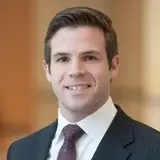Ujima Fund Investor Report Interview: James Michel
- Boston Ujima Project
- Dec 13, 2021
- 3 min read
December 13th, 2021 -- This quarter for our Winter 2021 Investor Update, we sat down with a group of four esteemed Ujima Fund Investors.

James O. Michel, aka Jom, is an aspiring wise elder (AWE). Radicalized by the civil rights, women’s liberation and antiwar movements during his coming of age, he ended up working within the system as a therapist and later a policy maker in the field of publicly funded behavioral healthcare. Over the past decade plus he has morphed into a climate justice organizer. He believes that BIPoc-led movements are humanity’s best chance to mitigate climate catastrophe, dismantle current oppressive systems of violent white supremacy, patriarchy, etc. and move us toward a solidarity economy and beloved community. He admires the beautiful and bold experiment that is the Boston Ujima Project, and commits to helping it succeed.
Johnny Charles: Who are you?
James: James Michel — Jimmy, uncle. [My] mom is connected to earlier New England colonization. I had the privilege of being a baby boomer! I came of age in the anti-war movement; MLK, American Indian liberation was happening. I, in some ways, was radicalized early. I am more of a New England person. I am of ownership class. I returned to Boston in the mid-1980’s and have been living in Hyde Park ever since then. I am a trained psychologist and got my MBA at Boston College (which is what brought me back to Boston). I have arrived at the climate catastrophe- and realized the system needs to change. I have 3 sons who went through Boston Public Schools. I am proud of them.
Why was it important for you to invest in the Fund?
Again, as I said, I learned that in the 1960’s, the U.S. does not work for the people. I have engaged to make the world better. I have understood for some time that, since the Ronald Regan era, the pendulum has changed. We are at a breaking point. Boston Ujima Project represents an opportunity to work for the collective good. What matters is who you love and who loves you. Ujima is pointing rightly to the idea that everyone’s liberation is interlinked. We need to think about investing, in tying energy, not to build ourselves but our community. I’m excited about moving from an extractive economy to a solidarity economy.
Date yourself: name an initiative that you recall in the past.
I marched on Washington as part of the anti-war movement. There’s a part of me that thinks we should get millions of people in the street again. The anti-war [movement] did effectively stop U.S. war-making for a little bit of time. Although I was a kid at the time, I have been working towards the deinstitutionalization of mental health to a more community based system. More intentional service than fee for service episodes.
What does sustainability mean to you?
That’s such an important buzzword these days, but it means a less greedy approach to harvesting resources from the earth. I think about sustainable farming which recognizes the importance of soil. We live in a time where we don’t respect that notion at all. The corporate mentality is who cares what damage is left behind. We just do short term accounting.
How do you feel about the future?
I worry about the future. I am about to turn 71. I definitely understand that everyday is precious. At times, I think there is going to be dark suffering. How is it we have 8 billion people on the planet but hundreds who live rich lives? That’s not sustainable. Mother Earth has made it clear that we are giving her a fever. I will say though, I am just aware of a lot of young people who are awakened to these realities and are engaged in trying to change the system. That gives me hope.
What is your legacy?
My purpose right now is to be making spiritual friends. My hope is that there will be a good crowd and there will be a celebration. [I hope to] help people believe to live purposely and based on love. If we in fact approach the world with love, we will be fine. My theory of change. People like me have a unique responsibility to this system our ancestors have left for us. Black and Indigenous people who have always practiced collective well-being and loving walking on this earth. My job is to support Black and Indigenous leadership, the beauty and the joy. My job is to not always center me, because that’s what I was trained to do. It is my feeling that we need to discover our humanity. Violent white supremacy and extractive capital are intertwined. ︎■

.png)


